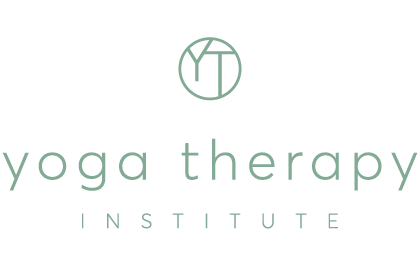What is Chronic Stress
- Chronic stress is longer term/ongoing sense of inability to cope with demands of life
- Stress-response relates to our reptilian brain and survival mode (real or perceived)
- While stress is a natural part of life, certain forms and effects of stress can be detrimental to wellbeing.
E.g.- neuro-toxic effects of cortisol
- increased visceral fat
- compromised telomere maintenance and replication
- Stress is an aggravating factor in many diseases
It can affect us all
Chronic Stress can affect anyone. We can experience it ourselves, see it in our clients, or within the community. In some respects, it surrounds us.
We all feel the pressures, tensions, stresses of workload, juggling things, burnout, anxiety over things in and out of our control, and now surviving in a Covid-19 world. Too often we put this down to day to day living pressures, unaware of or dismissing the compounding effects leading to Chronic Stress, and the possibility of change.
What does chronic stress look like
As we are all individuals and see and respond to things differently, what causes chronic stress is also highly variable. What is important is to provide ourselves and our clients with the space to acknowledge what is arising, and the opportunity to experience how the vast tradition of yoga provides us with ways of navigating through the chaos.
Chronic Stress can develop from physical, mental, or emotional experiences that result in increased physical and or psychological stress. This stress or tension can be from external factors like our home and work environment, behaviours impacting on our wellbeing, and our experiences in social situations past and present. We can also experience stress from illness and medical procedures.
How does Chronic Stress affect us
The Australian Institute of Health and Welfare (AIHW) says:
‘Stress can initiate the ‘fight or flight’ response, a complex reaction of the neurologic and endocrinologic systems. Continuous stress without relief can result in a condition called distress—a negative stress reaction that can lead to physical symptoms such as headaches, loss of appetite, increased blood pressure, chest pain, sexual dysfunction, and problems sleeping. Stress can also cause or influence a broad range of physical health conditions such as heart disease, diabetes, poor healing, irritable bowel syndrome, and mental disorders such as depression or anxiety.’
Stress stimulates the Sympathetic Nervous System – our fight and flight response, by releasing large quantities of epinephrine from our adrenal gland, and in turn increasing our heart rate and affecting almost every muscle and organ in our body as we prepare for the imminent danger (perceived or real). Ongoing, or chronic stress impacts on a range of bodily functions, including the balance of our autonomic nervous system.
What is the impact of Chronic Stress
In David Emerson and Elizabeth Hopper’s text Overcoming Trauma through Yoga, they explain: ‘This internal battle creates a situation of ongoing tension that is self-sustaining.’
How can we address Chronic Stress
There are effective ways to address and Chronic Stress, the first being to prevent it in the first place. The AIHW outlines Primary and Secondary Prevention measures. The primary prevention is to intervene before it takes hold by incorporating health and wellbeing tools as part of our daily lives.
It is important to know that as Chronic Stress manifests in different ways in each person, the approaches to counter and manage it will be just as individual.
Yoga therapy offers tools
Incorporating around five things into our day that bring us joy and calm is an ideal primary prevention for Chronic Stress, especially if the focus is on movement and connection. These can include, inquiry into the Yamas and Niyamas, movement through appropriate asana, chanting, sharing through connection with other living beings.
How can Yoga therapy help:
- Body signal awareness/interoception
- Reduction of tension incl. relaxation response
- Balances ANS and increases Vagal tone with appropriate pranayama practices
- Better self-regulation of sensory input
- Improved mental clarity
- Increased capacity to identify triggers, label emotions and establish healthy boundaries
- Practices supporting self-study and unconditional love
- Psycho-education on neuroscience and biology etc.
- Yoga philosophy and working with Yamas/Niyamas can broaden outlook
- Working with clients where they are, step by step
By incorporating the tools of Yoga that support us and our clients to deepen the felt-sense of connection with our inner lives, we can support alignment between our inner and outer experiences and move forwards with trust and courage.
More Details
The Yoga Therapy Institute will host a live two-day online workshop on Yoga Therapy for Chronic Stress Saturday 26 and Sunday 27 June lead by YTI educator and yoga therapist Trish David.
Resources
Yoga Therapy Institute What is the Vagus Nerve https://yogatherapyinstitute.com.au/blog/what-is-the-vagus-nerve/
Australian Institute of Health and Welfare Stress and Trauma Snapshot July 2020 https://www.aihw.gov.au/reports/australias-health/stress-and-trauma
Overcoming Trauma through Yoga by David Emerson and Elizabeth Hopper. Published by North Atlantic Books, Berkeley, California, 2011 (page 22).
